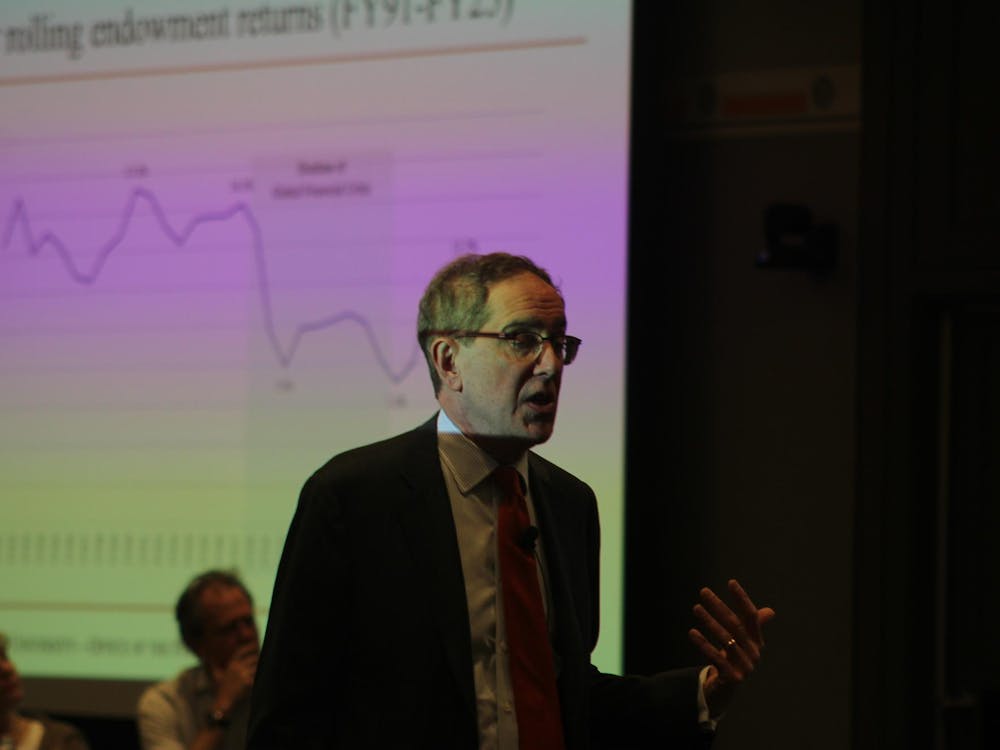Whitman College, named after Meg Whitman '77, will be one of three four-year colleges starting in 2006 and fully operational in 2010, the University announced yesterday. Whitman donated $30 million for the project.
In addition to Whitman College, to be located behind Dillon Gym, renovated Butler and Mathey colleges will allow undergraduate students to remain in a residential college for four years.
Each college will house underclassmen, about 100 upperclassmen and 10 -12 graduate students, Vice President and Secretary Thomas Wright '62 said.
The board of trustees adopted the new program after a recommendation last year by a joint student, faculty and administrative committee to incorporate the four-year program into the new residential college and two existing colleges, Wright explained.
Forbes and Whitman colleges, Rockefeller and Mathey colleges and Butler and Wilson colleges will be paired, each with both a two-year and a four-year college, Wright said.
He added that there would be an ongoing dialogue about the timing of renovations to Butler and Mathey colleges.
Work on Mathey is preliminarily scheduled to begin in 2005 and "extensive" renovations and possible building replacements in Butler would occur subsequently.
Whitman is scheduled to be complete in 2006 when underclassmen and upperclassmen will move in.

"I think it will make the University more attractive to students who find the idea of finding a stable home at a university important," President Tilghman said of the new program. "We know from admissions surveys that there are some students who do not apply to Princeton because you have to create a new community after two years."
Incoming freshmen will be assigned randomly to a residential college and after two years will be able to remain in the college, move to another residential college or enter an upperclassmen dormitory, Wright said.
The new college and renovations to the two existing colleges will be designed to incorporate public spaces, lounges, larger rooms for juniors and seniors, social study spaces and possibly apartments for visitors, Tilghman said.
In addition, she said she did not think the new four-year program would affect the number of eating club members and independent students.

She said she anticipated a significant number of undergraduates would wish to remain in a residential college.
Joe Kochan '02, former USG president and member of the committee that investigated new residential plans, echoed Tilghman's view.
"A lot of students are comfortable and happy with life on campus, but there are opportunities for students who are interested in something different," he said.
USG president Nina Langsam '03 said she was optimistic about the new program.
"I think it's worthwhile to try out the four-year system," she said. "Many students expressed interest in staying for four years, instead of dispersing after two years."
Discussions about a four-year college system have been ongoing since the days of former University president Woodrow Wilson 1879, who advocated a quadrangle system similar to that at Oxford and Cambridge universities where students could live, eat and socialize in an intellectual community.
Since then, the vision has gradually become a reality with the advent of the residential college system in the early 1980s and the approval of the Wythes plan in April 2000.







